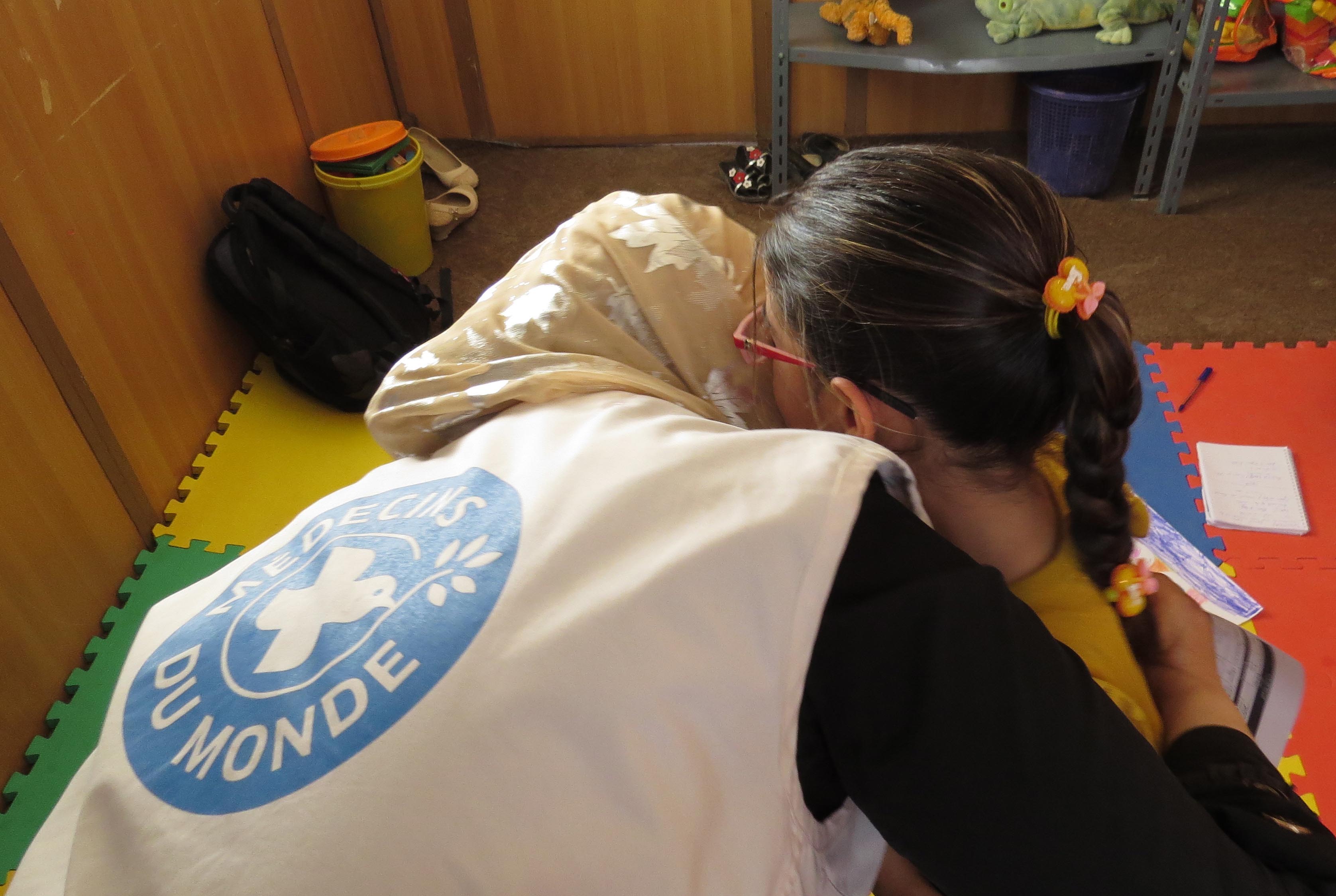Bedwetting stories

Children and youth are amongst the most vulnerable populations in war crisis. At a critical age development, they process and incorporate violence and trauma in different ways. Many memories from the Syrian civil war still haunt them wherever they go…This reminds us that the effect of war reverberates long after the bullets and bombs are gone… The residual effect folds into their lives…
For example, in Zaatari camp in Jordan, our dedicated mental health team noted that one of these effects is bedwetting. It is also known as night time incontinence or nocturnal enuresis and it causes frustration to the children and their parents. Due to the large number of cases, our team spotted the need of leading an activity aimed for children (from 5 years and older) who face this issue. As below 5 years, bedwetting is considered normal and does not need specific treatment.
The activity aims at the reduction of the number of bedwetting accidents, stress reduction and empowerment of caregivers and children in regaining control over the problem and the bladder. To the parents, advices are given on behavioral changes, fluid intake, empowerment of the child and positive parenting.
They establish with them a rewarding system and a calendar to follow up on the progress of the child. They also raise awareness on other related topics (for ex: how to deal with fear…) In parallel with the parents, they lead the work with the children. They explain to them how their body functions, they help them express themselves and give them the needed mental health support and accurate medical follow up.
All this with bearing in mind of course that no matter the reason, when a child is exposed to a traumatic event, it is important to reassure him that he is supported, loved…
Many people attended our program successfully till now, and behind the numbers each person had his story… A story like Maha, Omar, Fatima and so many others…
Maha, mother of 3 children, Syrian refugee living in Zaatari camp, Jordan
“My daughter was scared of me, because I am epileptic. I went through many crises already. It teared me apart to see my little one scared of me. What could I do? I couldn’t stop the crisis, but I could make the effect on my little one a bit less heavy. When I noticed that she had severe bedwetting issues, I took her to the MdM clinic. She followed the program which was great. She learned with their help how to conquer her fear little by little. She began to express herself, I learned also how to give her more attention… When the program ended, my little girl was way better… She now dreams of becoming a doctor to help other kids.”
Omar, 8 years old, Syrian refugee living in Zaatari camp, Jordan
“I was so afraid to lose my home again here in Zaatari, when I came to the clinic I felt better. I was not alone anymore, I had friends to play with. My mother and I talked more. Every night she was next to me and helped me. When I grow up I want to become an architect to build back Syria”
Fatima, 10 years old, Syrian refugee living in Zaatari camp, Jordan
“I was so afraid of the dark, now I have my little torch… My mother helps me whenever I need something at night, I like to come to the clinic. They became my friends.”